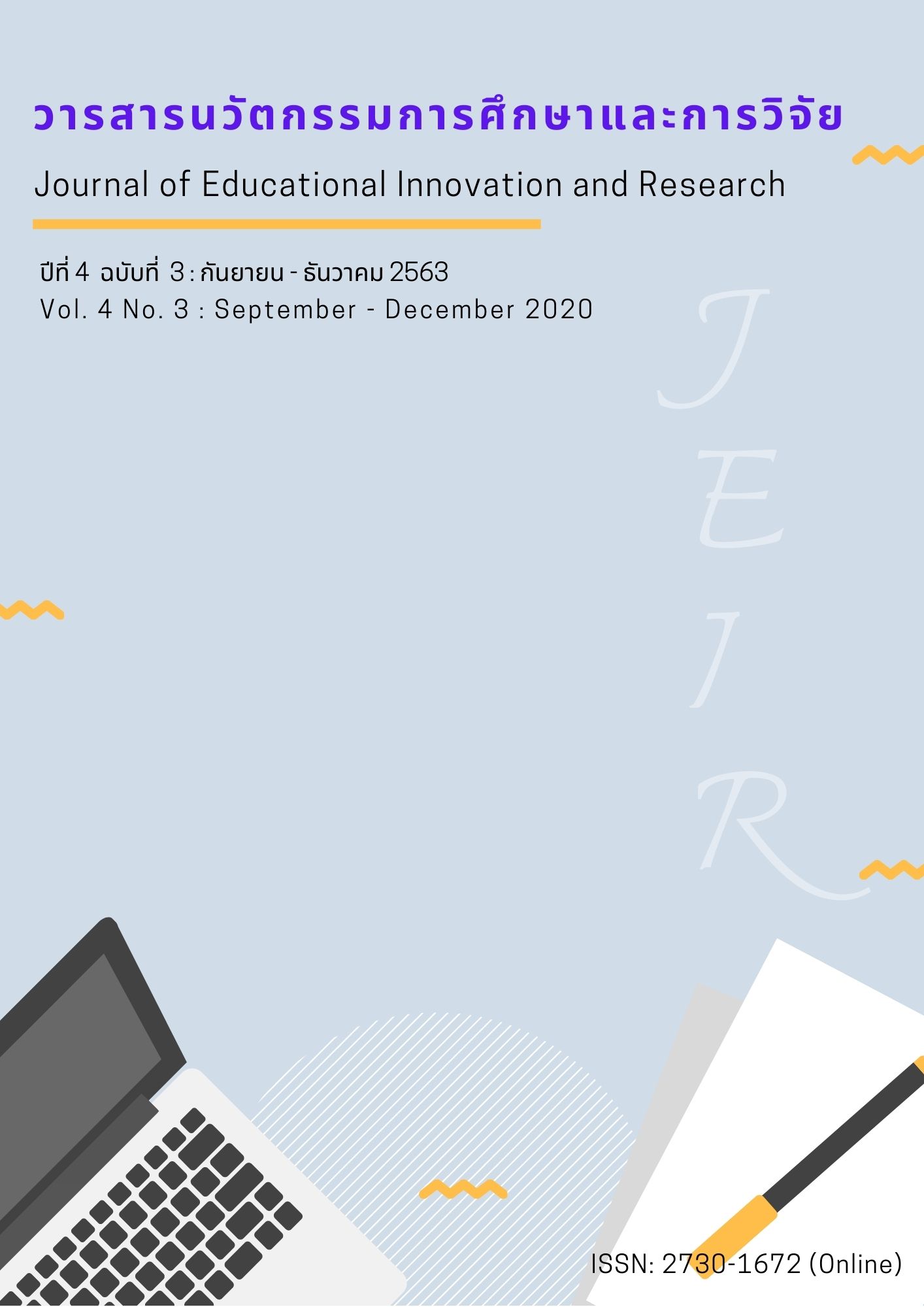ภาวะผู้นำของผู้บริหารโครงการในศตวรรษที่ 21 กับการผลิตบริการสาธารณะในยุค Thailand 4.0
Main Article Content
บทคัดย่อ
บทความวิชาการนี้มีวัตถุประสงค์เพื่อวิเคราะห์ภาวะผู้นำของผู้บริหารโครงการในศตวรรษที่ 21 กับการผลิตบริการสาธารณะในยุค Thailand 4.0 โดยทำการรวบรวมข้อมูลจากข้อมูลทุติยภูมิ คือ เอกสารทางวิชาการ หนังสือ และบทความวิชาการที่พิมพ์เผยแพร่ระหว่างปี 2555-2563 ด้วยการสืบค้นจากคำสำคัญ ได้แก่ ภาวะผู้นำ ผู้บริหารโครงการ การบริการสาธารณะ และทำการวิเคราะห์เนื้อหา ผลการวิเคราะห์ พบว่า ภาวะผู้นำของผู้บริหารโครงการในศตวรรษที่ 21 ควรประกอบด้วย 7 ประการ ได้แก่ 1) ร่วมกันกำหนดวิสัยทัศน์ 2) การร่วมกันนำ 3) การร่วมกันเรียนรู้ 4) สร้างชุมชนโดยการยึดหลักความสัมพันธ์แบบกลุ่ม 5) การร่วมกันพัฒนาพลังกลุ่ม 6) การร่วมกันปฏิบัติ และ 7) การสื่อสาร ให้ครอบคลุมการบริการสาธารณะ 5 ด้าน ได้แก่ ด้านโครงสร้างพื้นฐานกำหนดวิสัยทัศน์ด้านการจัดระเบียบชุมชน สังคม และการรักษาความสงบเรียบร้อย ด้านการวางแผนการส่งเสริมการลงทุน พาณิชยกรรม และการท่องเที่ยว ด้านการบริหารจัดการการอนุรักษ์ทรัพยากรธรรมชาติ และสิ่งแวดล้อม ให้สอดคล้องตามหลักการจัดบริการสาธารณะ คือ หลักว่าด้วยความเสมอภาค หลักว่าด้วยความต่อเนื่อง และหลักว่าด้วยการปรับปรุงเปลี่ยนแปลงเพื่อตอบสนองความต้องการของประชาชน
Article Details
เอกสารอ้างอิง
นารี น้อยจินดา. (2559). การพัฒนาภาวะผู้นำเชิงบูรณาการสำหรับผู้บริหารโรงเรียนมัธยมศึกษาในเขตกรุงเทพมหานคร. วารสารวิชาการมหาวิทยาลัยรัตนบัณฑิต, 10(2), 69-80.
บุญเลิศ ไพรินทร์. (2556). รัฐประศาสนศาสตร์: แนวคิด ทฤษฎี และวิธีปฏิบัติ. กรุงเทพฯ: เอส.พี.เอ เจริญผล.
ประยูร กาญจนดุล. (2533). คำบรรยายกฎหมายปกครอง. กรุงเทพฯ: จุฬาลงกรณ์มหาวิทยาลัย.
พรพิพัฒน์ ตั้งจิตรวัฒนากุล และสุกัญญา แช่มช้อย. (2560). แนวทางการพัฒนาภาวะผู้นำแบบให้บริการของผู้บริหารสถานศึกษาระดับมัธยมศึกษา. The Golgen Teak : Humanity and Social Science Journal, 23(1), 38-54.
พระครูปริยัติ วรเมธี, สยามพร พันธไชย, พระมหาไทยน้อย สลางสิงห์ และพระพลากร สุมงฺคโล. (2561). ภาวะผู้นำท้องถิ่นในศตวรรษที่ 21. วารสารวิชาการแพรวากาฬสินธุ์, 5(1), น. 191-213.
พระครูปลัดธรรมจริยวัฒน์. (2558). ภาวะผู้นำ: หลักธรรมและกระบวนการเรียนรู้เพื่อสร้างสรรค์. ขอนแก่น: โรงพิมพ์คลังนานาวิทยา.
พิชิต ฤทธิ์จรูญ. (2555). เทคนิคการประเมินโครงการ. กรุงเทพฯ: เฮ้าส์ออฟเคอร์มิสท์.
รัตติกรณ์ จงวิศาล. (2556). ภาวะผู้นำ: ทฤษฎี การวิจัย และแนวทางสู่การพัฒนา. กรุงเทพฯ: จุฬาลงกรณ์มหาวิทยาลัย.
วิโรจน์ สารรัตนะ. (2557). ภาวะผู้นำ: ทฤษฎีและนานาทัศนะร่วมสมัยปัจจุบัน. กรุงเทพฯ: ทิพยวิสุทธิ์.
สกาวเดือน พิมพิศาล และอนุชา ลาวงษ์. (2558). การวางแผนกลยุทธ์และการบริหารโครงการบนพื้นฐานหลักธรรมาภิบาล. Journal of Nakhonratchasima College, 9(1), 84-92.
สัมมา รธนิชย์. (2556). ภาวะผู้นำของผู้บริหาร. กรุงเทพฯ: พิมพ์ดี .
อธิวัฒน์ อุดมก้านตง และอลงกรณ์ อรรคแสง. (2561). ความต้องการบริการสาธารณะของประชาชนที่มีต่อองค์การบริหารส่วนตำบล: ข้อเสนอการกระจายอำนาจจากล่างขึ้นบน. วารสารการเมืองการปกครอง, 8(3), 79-97.
อริสรา ป้องกัน. (2559). การบริหารจัดการที่ดีในการจัดบริการสาธารณะขององค์การบริหารส่วนตำบลเขตพื้นที่ภาคเหนือตอนบน. EAU HERITAGE JOURNAL Social Science and Humanity, 6(2), 314-325.
อัคพงศ์ สุขมาตย์ และคณะ. (2560). ภาวะผู้นำแบบยั่งยืนในศตวรรษที่ 21 ภายใต้กรอบการศึกษาประเทศไทย. วารสารครุศาสตร์อุตสาหกรรม, 16(2), 1-7.


